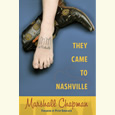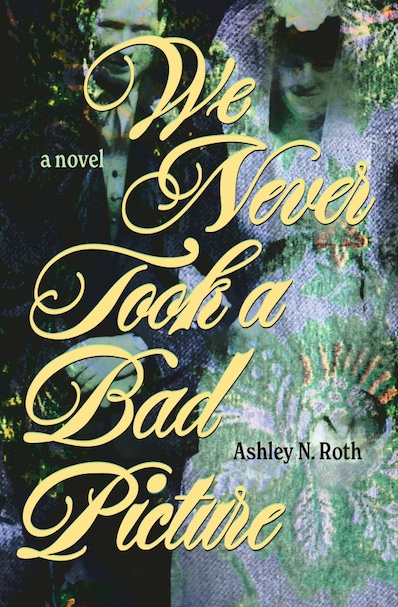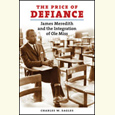Toward Justice
Anthony Ray Hinton’s The Sun Does Shine comes to young readers
Injustice isn’t an accident. As Nashville-based psychologist and author Christina Edmondson once observed, “Decisions create culture.” That three-word aphorism, applied personally and publicly, can go a long way toward getting a fix on fate, even arresting — and possibly reversing — the sinking feeling of the inevitable. If decisions create culture, perhaps what is isn’t what has to be.
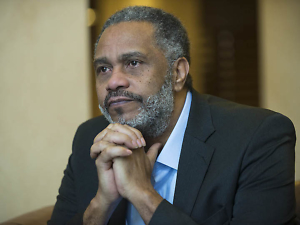 The tension between what is and what’s supposed to be marks any genuine consideration of the witness of Anthony Ray Hinton of Alabama. Wrongfully imprisoned, awaiting execution, and eventually exonerated and set free after 30 years on death row, Hinton exists among us as a courageous and movingly candid survivor of our state violence, an alive and signaling example of what’s wrong with our criminal justice system. His jarringly thorough memoir, The Sun Does Shine: How I Found Life, Freedom, and Justice, was published in 2018. The appearance of a young readers edition (subtitled An Innocent Man, A Wrongful Conviction, and the Long Path to Justice) is very good news for those invested in the dismantling of taxpayer-funded racist terror and the pursuit of transformative justice in the here and now.
The tension between what is and what’s supposed to be marks any genuine consideration of the witness of Anthony Ray Hinton of Alabama. Wrongfully imprisoned, awaiting execution, and eventually exonerated and set free after 30 years on death row, Hinton exists among us as a courageous and movingly candid survivor of our state violence, an alive and signaling example of what’s wrong with our criminal justice system. His jarringly thorough memoir, The Sun Does Shine: How I Found Life, Freedom, and Justice, was published in 2018. The appearance of a young readers edition (subtitled An Innocent Man, A Wrongful Conviction, and the Long Path to Justice) is very good news for those invested in the dismantling of taxpayer-funded racist terror and the pursuit of transformative justice in the here and now.
From the moment in 1985 when Hinton, at 29, is arrested and charged with two counts of capital murder, readers encounter an assortment of villains, but, as a narrator studying and reflecting upon his own experience, Hinton never villainizes the people who are wronging him. Instead, he confronts them with a commanding and often charismatic curiosity, chronicling aloud in court, for instance, their crushingly bad decisions (“You people don’t want the truth. … All you wanted was a conviction.”), as well as his resolute refusal to fritter away his own soul by dwelling in enmity: “I thank God that it came to me that I can’t make it into heaven hating anybody.”
By choosing to publicly narrate the torture and trauma carried out upon him, dramatizing the otherwise hidden hypocrisies of judges, lawyers, and law enforcement, Hinton moves between the bardic and the prophetic. In his open-handed, good-humored, and persistent intellectual hospitality under duress, he stands with Fannie Lou Hamer, Mandela, Gandhi, and Socrates. At the heart of his method is a conviction he picked up from his mother: With enough compassion, empathy, and imagination, some form of family can be made to exist anywhere.
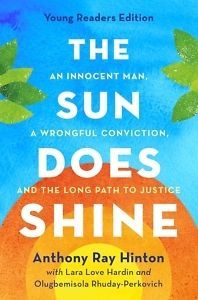 This is particularly evident when Hinton wrests from the warden the right to conduct a book club on death row. Like the guards with whom Hinton developed something akin to friendship, the warden was puzzled and charmed by his forthright friendliness coupled with a resolute unwillingness to suffer foolishness. (For instance, Hinton declined to appear or be addressed on camera when celebrity journalist Geraldo Rivera filmed himself spending the night in a cell.) When asked, the warden eagerly agreed to distribute copies of Maya Angelou’s I Know Why the Caged Bird Sings and James Baldwin’s Go Tell It on the Mountain to be shared, read, and discussed among the inmates. From there, Hinton conducted civil and even revelatory conversations with men like Henry Hays, a Ku Klux Klan member convicted and sentenced to death for his role in the lynching of Michael Donald, a Black man. Hinton and Hays end up reading Baldwin aloud to each other, with Hinton highlighting this: “For the rebirth of the soul was perpetual; only rebirth every hour could stay the hand of Satan.” Following his death by electrocution, Hays, like other departed book club members, was remembered through the setting aside of an empty chair.
This is particularly evident when Hinton wrests from the warden the right to conduct a book club on death row. Like the guards with whom Hinton developed something akin to friendship, the warden was puzzled and charmed by his forthright friendliness coupled with a resolute unwillingness to suffer foolishness. (For instance, Hinton declined to appear or be addressed on camera when celebrity journalist Geraldo Rivera filmed himself spending the night in a cell.) When asked, the warden eagerly agreed to distribute copies of Maya Angelou’s I Know Why the Caged Bird Sings and James Baldwin’s Go Tell It on the Mountain to be shared, read, and discussed among the inmates. From there, Hinton conducted civil and even revelatory conversations with men like Henry Hays, a Ku Klux Klan member convicted and sentenced to death for his role in the lynching of Michael Donald, a Black man. Hinton and Hays end up reading Baldwin aloud to each other, with Hinton highlighting this: “For the rebirth of the soul was perpetual; only rebirth every hour could stay the hand of Satan.” Following his death by electrocution, Hays, like other departed book club members, was remembered through the setting aside of an empty chair.
That gesture is of a piece with a commitment Hinton promises his peers he’ll extend beyond his years of incarceration: “I’m going to tell the world about how there was men in here that mattered. That cared about each other and the world. That were learning how to look at things differently.” Hinton holds to that promise by refusing the opportunity to accept a life sentence when a lawyer working with Equal Justice Initiative (EJI) places it before him — even if it means execution is in his future: “I’d rather die for the truth than live a lie.” By firing that particular lawyer, he enters into a working relationship with EJI’s founder and executive director, Bryan Stevenson.
From there, the delays are maddening. Even with his innocence essentially proven, the determined denials of well-heeled public officials in Alabama, who want above all else to save their own reputations, keep him caged. Readers are made to see the multi-pronged strategies and interlocking tactics involving courtrooms, journalists, and network news producers anyone — lawyers, activists, allies — has to undertake to move the needle toward justice.
Hinton’s story reminds us how betrayals of self and others add up to injustice and an accompanying climate of fear. But little rituals of attempted righteousness — of remembrance and self-regard — add up, too. Small, meaningful actions can change the course of human events. In the telling of his tale and his determination to find common cause with unlikely others, Hinton endures by being nimble and refusing to reduce his soul to the size of someone else’s fear.
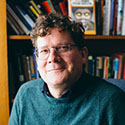
David Dark is the author of five books, including The Possibility of America, Life’s Too Short to Pretend You’re Not Religious, and The Sacredness of Questioning Everything. He lives in Nashville and teaches at Belmont University and the Tennessee Prison for Women.
